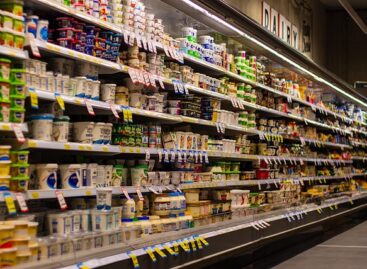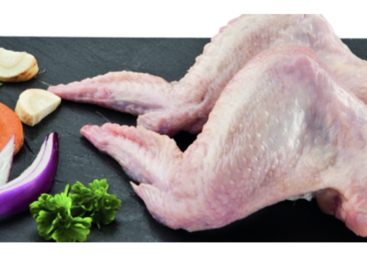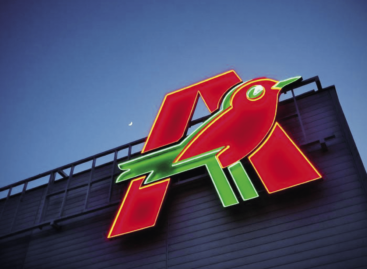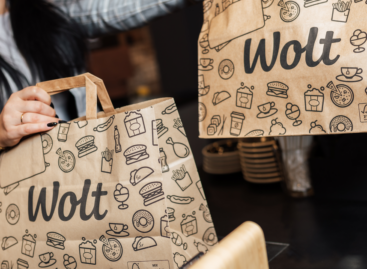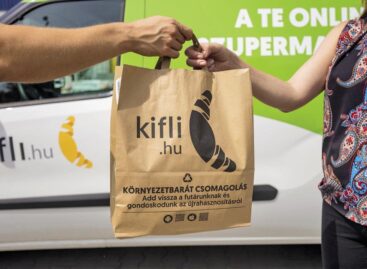Navigation and shopping
Research results by Retail Dive for Waze from early this year reveal: in the first quarter of 2022 there were 4.7% more navigations to retail outlets. The study also found that consumers have remained optimistic and they are happy to shop. Retailers’ success depends on whether they can bring those consumers into the stores who are constantly on the go. It became clear from the survey that 6 from 10 shoppers prefer brands which have a physical store, and almost 8 from 10 consumers visit a shop because they want to purchase something that they wish to use instantly. After positive experiences 82% of customers return, and 64% spend more every time they visit the same store. Retailers must understand that today consumers want a combination of physical and digital experiences. Store owners should make online product search easier in stores, motivate customers to try the products, offer expert advice and an experience there and then.
Reacting to megatrends
Shopping habits are transforming all over the world. Retailers and wholesalers should react to these changes. Today new forms of retail and services are appearing out of nowhere. Those who react quickly to these are going to be the winners – and some of them actually will be very big winners, as futurologists predict that the number of dollar millionaires will double in the next few years. //
Lidl: Eating guide

Judit Tőzsér
head of corporate communications
Lidl Hungary
One of the pillar’s of Lidl’s success and business strategy is high quality private label (PL) products, with the best price-value ratio. Lidl seeks to popularise a healthy life and diet by cutting the added salt and sugar content of PL products by 20% until 2025. The discounter has collected the latest research results and social trends in the Lidl Eating Guide. Lidl’s PL foods include Pilos and Milbona dairy products, Dulano and Pikok Pure processed meats, and Freshona frozen vegetables. //
SPAR – innovations and specialties

Márk Maczelka
head of corporate communications
SPAR Magyarország
Every shopper can find what they need in SPAR’s wide range of private label products. These have a 30% share in the retailer’s total sales turnover, and the Top 10 are fresh products. There are already more than 500 S-Budget products, and more than 70% of these are Hungarian-made. SPAR’s product development work focuses on innovation and satisfying special needs. Two of their pioneering products are SPAR quick-frozen, peeled and diced avocado, and SPAR free from gluten-free breaded chicken breast, filled with lactose-free cheese. //
Auchan: innovations tailored to shopper needs

Katalin Kánya
procurement coach and
own brand coordinator
Auchan
At Auchan private label (PL) products play a central role in the company’s retail policy: Auchan tipp offers the best prices, Auchan Kedvenc gives value for money and Auchan Collection products represent premium quality. “84% of Auchan’s 1,200 PL products are Hungarian-made” said Katalin Kánya, procurement coach and own brand coordinator of Auchan //
Dm: being different and climate neutral

Rita Reményi
assortment manager
dm Magyarország
Dm stores and the chain’s online shop offer approximately 4,300 SKUs from 29 dm brands, such as Mivolis, dmBio, babylove, Balea and denkmit. One quarter of sales is realised by these private labels, and they are forecasted to continue producing double-digit sales growth. Dm’s business policy focuses on being different from competitors. //
Tesco: multidirectional saving

Nóra Hevesi
head of communications
Tesco-Global
Tesco uses private labels (PL) to differentiate itself from competitors. Suppliers save money with them, as they don’t need to invest in marketing. More and more customers choose Tesco’s Finest, FreeFrom (free-from), Plant Chef (vegan) and Bio (organic) products. PL products can be found in more than 600 categories, and sales of these were up more than 5% in the last six months. //
Reál: growing PL selection, mainly from Hungarian suppliers

Lívia Jeszenszki
managing director
Reál Hungária
Reál’s nearly 600 private label (PL) products offer an excellent alternative to branded products, thanks to their good quality and superb price-value ratio. Most of them are supplied by established Hungarian food companies, who make them from Hungarian raw material. Consumer feedback is positive and sales of Reál Falusi, Rió, Melody and Hárs continue to grow. //
This article is available for reading in Trade magazin 2022.12-01
Related news
The place of Hungarian products in stores is in danger
🎧 Hallgasd a cikket: Lejátszás Szünet Folytatás Leállítás Nyelv: Auto…
Read more >Super Bowl fever at Tesco: an American gastronomic experience made with Hungarian ingredients for watching the game
🎧 Hallgasd a cikket: Lejátszás Szünet Folytatás Leállítás Nyelv: Auto…
Read more >Costume hunt begins: Auchan explodes with brutal carnival offer
🎧 Hallgasd a cikket: Lejátszás Szünet Folytatás Leállítás Nyelv: Auto…
Read more >Related news
Sentix: investor sentiment improved in the eurozone in February
🎧 Hallgasd a cikket: Lejátszás Szünet Folytatás Leállítás Nyelv: Auto…
Read more >Wolt Hungary, together with the Ministry of National Economy, has developed an action plan for the responsible and sustainable development of the local commerce industry
🎧 Hallgasd a cikket: Lejátszás Szünet Folytatás Leállítás Nyelv: Auto…
Read more >Kifli.hu expands significantly in Western Hungary
🎧 Hallgasd a cikket: Lejátszás Szünet Folytatás Leállítás Nyelv: Auto…
Read more >

